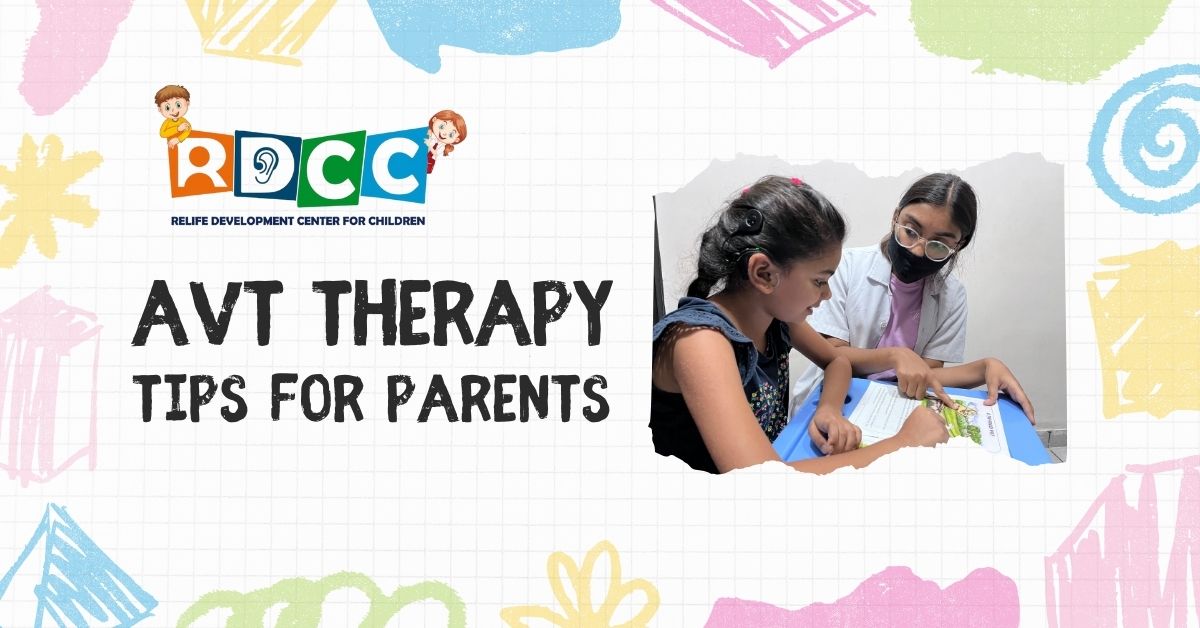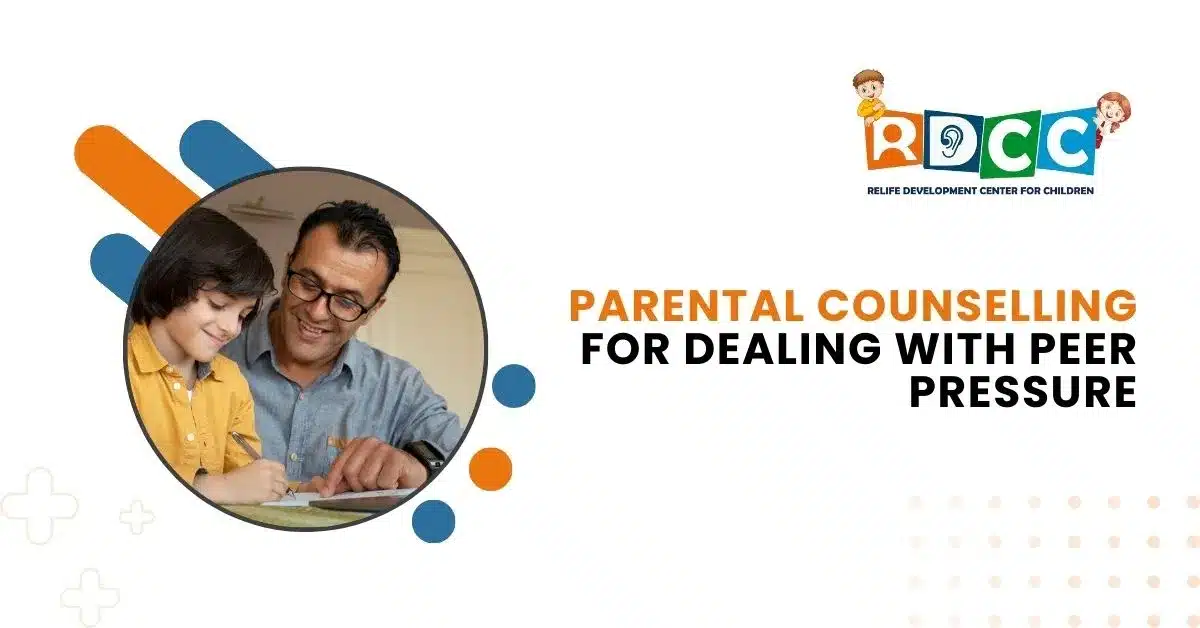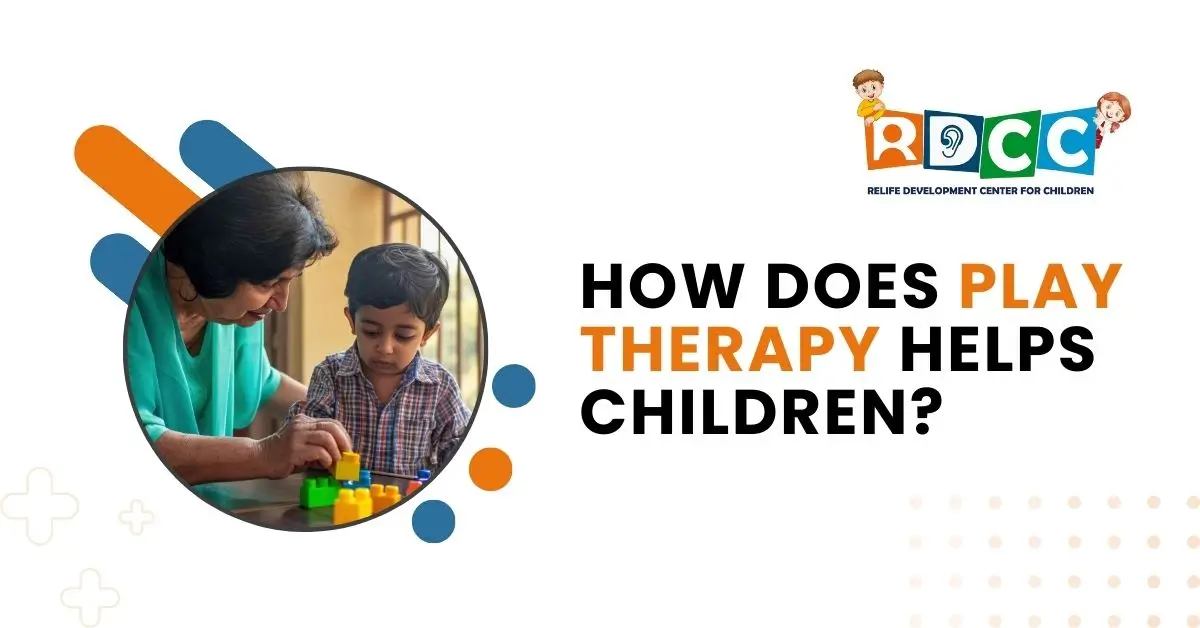
At RDCC Healthcare, Vadodara’s Leading Child Development Centre, we understand the Importance of Auditory Verbal Therapy (AVT) in Enhancing Communication Skills. AVT focuses on teaching Children with Hearing Impairments to Listen and Speak using their Residual Hearing. Here’s a Comprehensive Guide to help Parents understand AVT and Support their Child’s Journey
What is Auditory Verbal Therapy?
Auditory Verbal Therapy (AVT) focuses on Teaching Children with Hearing Impairments to Listen and Speak using their Residual Hearing. It emphasizes Intensive Listening Practice to optimize a Child’s Hearing Potential and promote Speech Development Naturally. AVT aims to Maximize Auditory Skills, enabling Children to Integrate into Mainstream Educational and Social Environments Effectively.
Benefits of Auditory Verbal Therapy
There are many Benefits of Auditory Verbal Therapy (AVT), some of them are:
Enhanced Listening Skills: Improves a Child’s Ability to Detect and Understand Speech Sounds.
Speech Development: Facilitates Natural Speech Production and Clarity.
Integration into Mainstream Settings: Prepares Children to Communicate Effectively in School and Social Environments.
Family Involvement: Encourages Active Participation of Parents in their Child’s Auditory and Language Development Journey.
Early Intervention: Supports Early Identification and Treatment of Hearing Impairments for Better Long-term Outcomes.
Auditory Verbal Therapy Activities
Auditory Verbal Therapy involves Engaging Children in Various Activities that promote Listening and Speaking Skills. Here are Some Effective Activities:
Sound Identification: Help Children Identify and Differentiate between Various Sounds in their Environment, Enhancing Auditory Discrimination.
Listening Games: Engage Children in Fun Games that Involve Listening to and Following Instructions, promoting Active Listening Skills.
Reading Aloud: Read Books to Children, emphasizing Clear Articulation and Expression to improve their Listening and Speaking Abilities.
Interactive Storytelling: Encourage Children to participate in Storytelling, which aids in Developing their Vocabulary and Comprehension Skills.
Daily Conversations: Incorporate Structured Conversations during Daily Activities to practice Listening and Verbal Skills in Real-life Contexts.
Rhyming and Singing: Use Songs and Rhymes to make Learning Sounds and Words Enjoyable, reinforcing Language Patterns and Phonetics.
Play-based Learning: Utilize Toys and Play Activities to create Natural Opportunities for Children to practice Listening and Speaking.
Parent-Child Interaction: Guide Parents on How to create a Rich Auditory Environment at Home to support Continuous Learning and Practice.
Tips Every Parents Should Know
Supporting your Child’s Journey in Auditory Verbal Therapy (AVT) involves Active Participation and creating a Conducive Environment for Learning. Here are Essential Tips for Parents:
Consistent Practice: Integrate AVT Techniques into Daily Routines to reinforce Learning and Consistency.
Create a Quiet Environment: Minimize Background Noise to help your Child focus Better on Sounds and Speech.
Use Clear Speech: Speak Clearly and at a Moderate Pace to Model Proper Speech Patterns for Your Child.
Positive Reinforcement: Encourage and Praise Your Child’s Efforts to Build Confidence and Motivation.
Be Patient: Progress in AVT can be Gradual, so Patience and Understanding are Key to Supporting your Child’s Development.
Engage in Listening Activities: Regularly involve your Child in Activities that enhance Listening Skills, such as Reading Aloud or Playing Listening Games.
Collaborate with Therapists: Work Closely with your Child’s AVT Therapist to understand Strategies and Techniques used in Sessions.
Educate Yourself: Stay Informed about AVT Methods and Resources to better Support your Child’s Therapy at Home.
Encourage Social Interaction: Facilitate Opportunities for your Child to Interact with Peers to Practice Communication Skills in Real-life Settings.
Maintain a Positive Attitude: Your Optimism and Support can significantly Impact your Child’s Progress and Overall Therapy Experience.
Frequently Asked Questions
What is Auditory Verbal Therapy (AVT)?
Auditory Verbal Therapy (AVT) is a specialized approach that teaches children with hearing impairments to listen and speak using their residual hearing. It focuses on intensive listening practice to optimize a child’s hearing potential and promote natural speech development.
How does AVT Benefit my Child?
AVT enhances listening skills, facilitates natural speech production, prepares children for mainstream settings, involves family participation, and supports early intervention for better long-term outcomes.
What Activities are Involved in AVT?
Activities in AVT include sound identification, listening games, reading aloud, interactive storytelling, daily conversations, rhyming and singing, play-based learning, and parent-child interaction.
How can Parents Support AVT at Home?
Parents can support AVT by integrating techniques into daily routines, creating a quiet environment, using clear speech, providing positive reinforcement, engaging in listening activities, collaborating with therapists, staying informed, encouraging social interaction, and maintaining a positive attitude.
Who can Benefit from AVT?
Children with hearing impairments who are learning to use their residual hearing to develop speech and listening skills can benefit from AVT. Early intervention is crucial for the best outcomes.
Conclusion
Auditory Verbal Therapy (AVT) is a Powerful Approach to Enhancing the Communication Skills of Children with Hearing Impairments. At RDCC Healthcare, Vadodara’s Leading Child Development Centre, we are committed to providing Personalized and Effective AVT Programs. Our Expert Therapists work closely with parents to create a Supportive and Engaging Environment for children to develop their Listening and Speaking Abilities. By following the Tips and Activities outlined in this guide, Parents can play a Vital Role in their Child’s Auditory and Language Development Journey. For More Information on How RDCC Healthcare can Support your Child’s AVT Needs, Contact Us Today.




